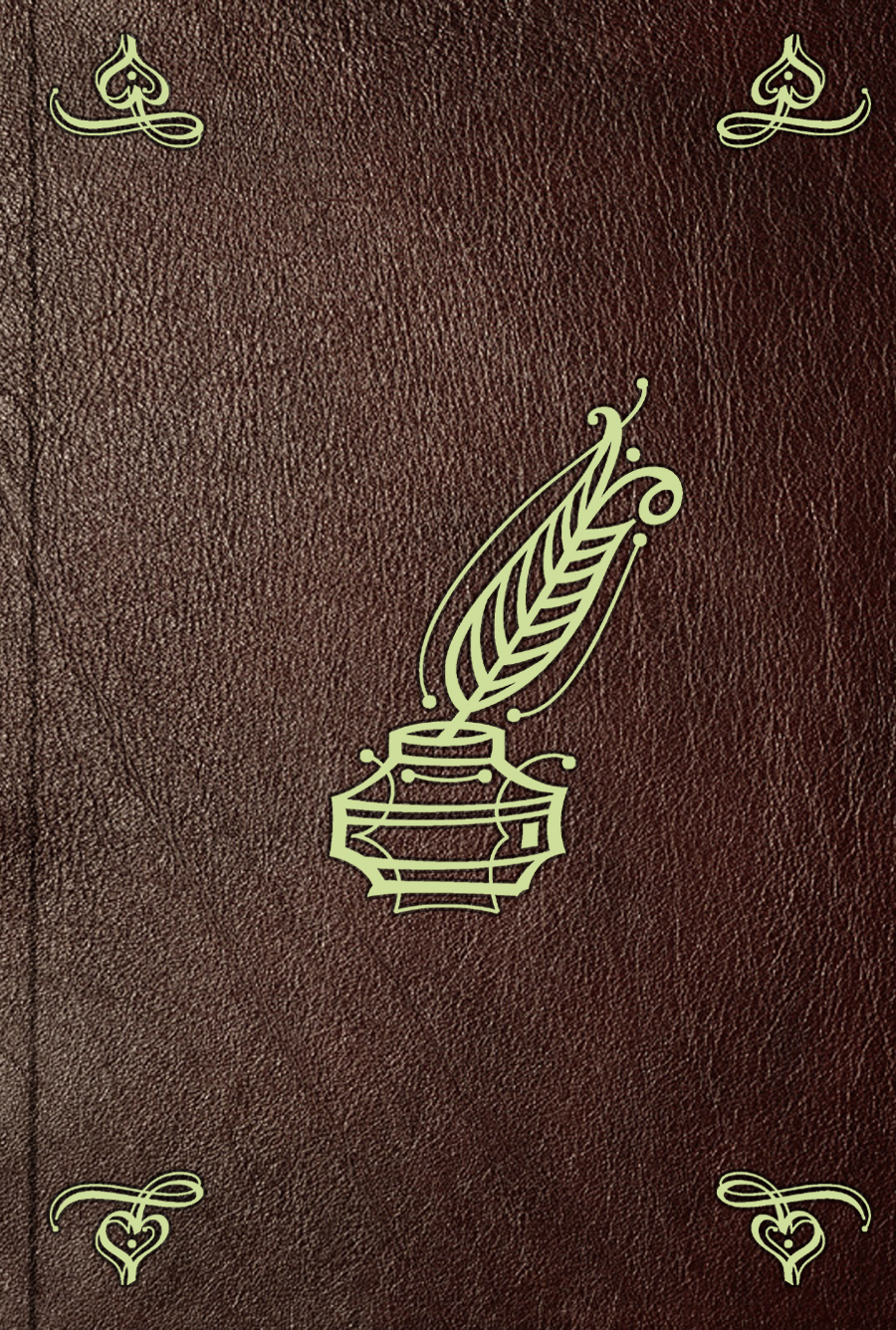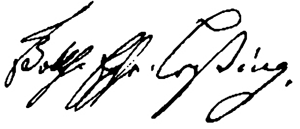Электронная книга: Gotthold Ephraim Lessing «Sämmtliche Schriften. T. 17»

|
Примечание: Полное собрание сочинений Г. Э. Лессинга. Полный вариант заголовка: «Gotthold Ephraim Lessings Sämmtliche Schriften. T. 17 : Theologischer Nachlass». Издательство: "Библиотечный фонд" (1793)
электронная книга Скачать бесплатно на Litres |
Другие книги автора:
| Книга | Описание | Год | Цена | Тип книги |
|---|---|---|---|---|
| Kollektaneen zur Literatur. Bd 2. K-Z | Полный вариант заголовка: «Kollektaneen zur Literatur. 2 Band. K. – Z. / Gotthold Ephraim Lessings ; herausgegeben und weiter ausgefuhrt von Johann Joachim Eschenburg» — Библиотечный фонд, электронная книга Подробнее... | электронная книга | ||
| Sämmtliche Schriften. T. 3 | Примечание: Полное собрание сочинений Г. Э. Лессинга. Полный вариант заголовка: «Gotthold Ephraim Lessings Sämmtliche Schriften. T… — Библиотечный фонд, электронная книга Подробнее... | электронная книга | ||
| Sämmtliche Schriften. T. 2 | Примечание: Полное собрание сочинений Г. Э. Лессинга. Полный вариант заголовка: «Gotthold Ephraim Lessings Sämmtliche Schriften. T… — Библиотечный фонд, электронная книга Подробнее... | электронная книга | ||
| Sämmtliche Schriften. T. 19 | Примечание: Полное собрание сочинений Г. Э. Лессинга. Полный вариант заголовка: «Gotthold Ephraim Lessings Sämmtliche Schriften. T… — Библиотечный фонд, электронная книга Подробнее... | электронная книга | ||
| Emilia Galotti: Trauerspiel | Полный вариант заголовка: «Emilia Galotti : Trauerspiel / von Gotthold Ephraim Lessing» — Библиотечный фонд, электронная книга Подробнее... | электронная книга | ||
| Lustspiele. T. 2 | Полный вариант заголовка: «Lustspiele. 2 Theil / von Gotthold Ephraim Lessing» — Библиотечный фонд, электронная книга Подробнее... | электронная книга | ||
| Sämmtliche Schriften. T. 28 | Примечание: Полное собрание сочинений Г. Э. Лессинга. Полный вариант заголовка: «Gotthold Ephraim Lessings Sämmtliche Schriften. T… — Библиотечный фонд, электронная книга Подробнее... | электронная книга | ||
| Sämmtliche Schriften. T. 29 | Примечание: Полное собрание сочинений Г. Э. Лессинга. Полный вариант заголовка: «Gotthold Ephraim Lessings Sämmtliche Schriften. T… — Библиотечный фонд, электронная книга Подробнее... | электронная книга | ||
| Sämmtliche Schriften. T. 30 | Примечание: Полное собрание сочинений Г. Э. Лессинга. Полный вариант заголовка: «Gotthold Ephraim Lessings Sämmtliche Schriften. T… — Библиотечный фонд, электронная книга Подробнее... | электронная книга | ||
| Sämmtliche Schriften. T. 23 | Примечание: Полное собрание сочинений Г. Э. Лессинга. Полный вариант заголовка: «Gotthold Ephraim Lessings Sämmtliche Schriften. T… — Библиотечный фонд, электронная книга Подробнее... | электронная книга | ||
| Sämmtliche Schriften. T. 24 | Примечание: Полное собрание сочинений Г. Э. Лессинга. Полный вариант заголовка: «Gotthold Ephraim Lessings Sämmtliche Schriften. T… — Библиотечный фонд, электронная книга Подробнее... | электронная книга | ||
| Sämmtliche Schriften. T. 25 | Примечание: Полное собрание сочинений Г. Э. Лессинга. Полный вариант заголовка: «Gotthold Ephraim Lessings Sämmtliche Schriften. T… — Библиотечный фонд, электронная книга Подробнее... | электронная книга | ||
| Sämmtliche Schriften. T. 27 | Примечание: Полное собрание сочинений Г. Э. Лессинга. Полный вариант заголовка: «Gotthold Ephraim Lessings Sämmtliche Schriften. T… — Библиотечный фонд, электронная книга Подробнее... | электронная книга | ||
| Sämmtliche Schriften. T. 18 | Примечание: Полное собрание сочинений Г. Э. Лессинга. Полный вариант заголовка: «Gotthold Ephraim Lessings Sämmtliche Schriften. T… — Библиотечный фонд, электронная книга Подробнее... | электронная книга | ||
| Sämmtliche Schriften. T. 20 | Примечание: Полное собрание сочинений Г. Э. Лессинга. Полный вариант заголовка: «Gotthold Ephraim Lessings Sämmtliche Schriften. T… — Библиотечный фонд, электронная книга Подробнее... | электронная книга |
Gotthold Ephraim Lessing
Infobox Writer
name = Gotthold Ephraim Lessing
imagesize =
caption =
pseudonym =
birthname =
birthdate =
birthplace =
deathdate =
deathplace = Braunschweig
occupation =
nationality = German
period =
genre =
subject =
movement =
notableworks = "Miss Sara Sampson"; "
spouse =
partner =
children =
relatives =
influences =
influenced =
awards =
website =
Gotthold Ephraim Lessing (
Life
Lessing was born in
From 1748 to 1760 he lived in Leipzig and
In 1770 Lessing became a
In 1776 he married Eva König, who was widowed now, in Jork (near Hamburg). She died in 1778 after giving birth to a short-lived son.
On
Works
Lessing was a poet, philosopher and critic. As an outstanding representative of the
Early in his life, Lessing showed interest in the theatre. In his theoretical and critical writings on the subject—as in his own plays—he tried to contribute to the development of a new bourgeois theatre in Germany. With this he especially turned against the then predominant
In his religious and philosophical writings he defended the faithful Christian's right for freedom of thought. He argued against the belief in revelation and the holding on to a literal interpretation of the Bible by the predominant orthodox doctrine. As a child of the Enlightenment he trusted in a "Christianity of Reason", which oriented itself by the spirit of religion. He believed that human reason (initiated by criticism and dissent) would develop, even without help by a divine revelation.
In addition, he spoke up for
The idea of freedom (for the theatre against the dominance of its French model; for religion from the church's dogma) is his central theme throughout his life. Therefore he also stood up for the liberation of the upcoming bourgeoisie from the nobility making up their minds for them.
In his own literary existence he also constantly strove for independence. But his ideal of a possible life as a free author was hard to keep up against the economic constraints he faced. His project of authors self-publishing their works, which he tried to accomplish in Hamburg with
Lessing is important as a
elected bibliography
*"The Young Scholar" ("Der junge Gelehrte") (1748)
*"The Freethinker" ("Der Freigeist") (1749)
*"The Jews" ("Die Juden") (1749)
*"Miß Sara Sampson" (1755)
*"
*"Fables" ("Fabeln") (1759)
*"Laokoon oder Über die Grenzen der Malerei und Poesie" (1766)
*"Minna of Barnhelm" ("Minna von Barnhelm") (1767)
*"
*"Anti-Goeze" (1778)
*"
*"Ernst und Falk - Gespräche für Freymäurer" (1776-1778)
*"The Education of Humankind" ("Die Erziehung des Menschengeschlechts") (1780)
English Editions
*"Fables and epigrams". London, Printed for J.& H.L. Hunt, 1825.
*"Laocoon: or, The limits of Poetry and Painting", translated by William Ross. London, Ridgeway, 1836.
*"Nathan the Wise: a dramatic poem in five acts", translated by Adolph Reich. London, A. W. Bennett, 1860.
*"Nathan, the Wise. A dramatic poem of five acts", translated by Dr. Isidor Kalisch. New York, Waldheimer & Zenn, 1869.
*"The Education of the Human Race", translated by Fred W. Robertson, M.A.. London, C.K. Paul & Co., 1881.
*"Plays of Lessing: Nathan the Wise and Minna von Barnhelm", translated by Ernest Bell. London, G. Bell, 1888.
*"Selected prose works of G. E. Lessing", translated by E. C. Beasley, B. A., and Helen Zimmern. London, G. Bell and sons, 1890.
*"Lessing’s Emilia Galotti", with footnotes and vocabulary; New York, Hinds & Noble, 1899.
*"Lessing’s Nathan der Weise", with footnotes and vocabulary. New York, Hinds & Noble, 1899.
*"Laocoon. An essay upon the limits of painting and poetry: With remarks illustrative of various points in the history of ancient art", translated by Ellen Frothingham. Boston, Little, Brown, 1904.
*"Laocoon", translated by Sir Robert Phillimore, London, G. Routledge & sons, 1905.
*"Minna von Barnhelm", edited with an introduction, German questions, notes and vocabulary, by Philip Schuyler Allen. New York, Charles E. Merrill Co., 1907.
*"Minna von Barnhelm; or, Soldier’s fortune" translated by Otto Heller. New York, H. Holt and company, 1917.
*"Nathan the Wise; a dramatic poem in five acts", translated and edited by Leo Markun. Girard, Kan., Haldeman-Julius Co., 1926.
*"Laocoon, Nathan the Wise, Minna von Barnhelm", translated by William A. Steel. London, J. M. Dent & sons, ltd.; New York, E. P. Dutton & co., inc., 1930.
*"Nathan the Wise", translated by Berthold August Eisenlohr. Ann Arbor, Mich., Lithoprinted by Edwards Brothers, inc., 1942.
*"Nathan the Wise", translated by Guenther Reinhardt. Brooklyn, Barron’s Educational Series, inc., 1950.
*"Nathan the Wise; a dramatic poem in five acts", translated into English verse by Bayard Quincy Morgan. New York, Ungar, 1955.
* [http://books.google.com/books?id=u6orAAAAIAAJ&pgis=1 "Theological Writings; Selections in Translation with an Introductory Essay"] , by Henry Chadwick. London, A. & C. Black, 1956.
*"Emilia Galotti: a tragedy in five acts", translated by Anna Johanna Gode von Aesch. Great Neck, N.Y., Barron’s Educational Series, inc., 1959.
*"Emilia Galotti, a tragedy in five acts", translated by Edward Dvoretzky. New York, Ungar, 1962.
*"Hamburg dramaturgy", translated by Victor Lange. New York, Dover Publications, 1962.
*"Laocoon: an essay on the limits of painting and poetry", translated by Edward Allen McCormick. Indianapolis, Bobbs-Merrill, 1962.
*"Minna von Barnhelm: a comedy in five acts", translated by
ee also
*
*
* E.A. Bucchianeri: "Faust: My Soul be Damned for the World. Vol. 1." Bloomington, Indiana: Authorhouse, 2008. Feautures a study of Lessing's unfinished Faust drama.
External links
* (German)
*
* [http://gutenberg.spiegel.de/autoren/lessing.htm Works by Gotthold Ephraim Lessing] at Projekt Gutenberg (German)
Persondata
NAME=Lessing, Gotthold Ephraim
ALTERNATIVE NAMES=
SHORT DESCRIPTION=writer, philosopher, publicist, and art critic
DATE OF BIRTH=
PLACE OF BIRTH=
DATE OF DEATH=
PLACE OF DEATH=Braunschweig
Источник: Gotthold Ephraim Lessing
См. также в других словарях:
Freimaurerei — Freimaurerei, eine unter eigenen Formen bestehende Gesellschaft, die zunächst in England als ein bereits gebildeter Verein öffentlich bekannt wurde u. von da aus sich in Kurzem durch einen großen Theil der Welt verbreitete. I. Die… … Pierer's Universal-Lexikon
Büsch, Joh Georg — Büsch, Joh Georg, geb. 1728 in Alten Meding im Lüneburgischen; wurde 1757 Professor der Mathematik am Gymnasium zu Hamburg, l767 auch Director der Handelsakademie u. mit Ebeling Stifter der ersten Handelschule; er st. 1800, u. ihm wurde von der… … Pierer's Universal-Lexikon
Бюш — (Büsch) немецкий финансист; род. в 1728 г.; с 1748 г. посещал геттингенский университет, в 1758 г. сделался преподавателем математики в гамбургской гимназии, в 1766 г. основал в Гамбурге коммерческую академию и в 1800 г. скончался. Он оказал… … Энциклопедический словарь Ф.А. Брокгауза и И.А. Ефрона
Lessing — Lessing, 1) Gotthold Ephraim, geb. 22. Jan. 1729 zu Kamenz in der Oberlausitz, wo sein Vater Geistlicher war, besuchte seit 1741 die Fürstenschule in Meißen u. ging im Herbst 1746 nach Leipzig, um Theologie zu studiren; da ihn jedoch diese… … Pierer's Universal-Lexikon
Lessing, Gotthold Ephraim — born Jan. 22, 1729, Kamenz, Upper Lusatia, Saxony died Feb. 15, 1781, Braunschweig, Brunswick German playwright and critic. After writing several light comedies, he became a theatre critic in Berlin in 1748. His play Miss Sara Sampson (1755) was… … Universalium
Ernst Christoph Hochmann von Hochenau — (* 1670 in Lauenburg, Elbe; † Anfang Januar 1721 in Schwarzenau) war mystisch separatistischer Pietist. Inhaltsverzeichnis 1 Leben und Wirken 2 Werke 3 Literatur … Deutsch Wikipedia
